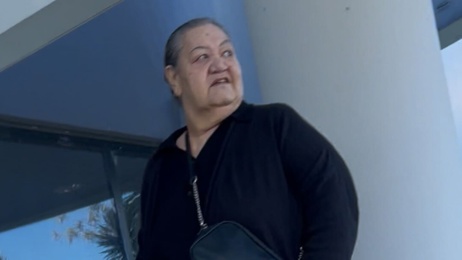When the family of Nicky Stevens sit down at an inquest into his death in June, it will be more than three years since he took his own life.
And in that time the 21-year-old's mother, Jane Stevens, has become and advocate and advisor to other bereaved mums of suicide victims, because she says, no-one else is providing the desperately needed service.
The families of people who have committed suicide do not have adequate support to endure a "brutal" coronial inquiry process, that can sometimes take up to five years to arrive at an inquest, Stevens says.
She wants this, and the fact families are left out in the cold when it comes to legal rights, financial aid, suppressions and support, recognised and she wants the system changed so that the voices of the families do not go unheard.
"What our hope for the inquest was that it was going to be about the truth of what happened to Nicky being examined and explored."
Nicholas Taiaroa Macpherson Stevens suffered from schizophrenia and was under a compulsory care order at Henry Rongomau Bennett Centre, Waikato District Health Board's mental health and addiction unit at Waikato Hospital, when he failed to return from an unsupervised 15 minute cigarette break on March 9, 2015.
The artist and musician's body was found in the Waikato River three days later.
"Right from the outset everybody got lawyered up," Stevens said.
"The DHB, the doctor, the police, the health providers, the coroner even employed a lawyer and once you do that it's a very different ball game.
"And everyone kept saying 'You're the family you don't need a lawyer'. Well actually it's hard enough with one, it would have been a nightmare without one."
In a precedent-setting move the family asked Waikato DHB to pay for a lawyer for them to navigate the coronial process, but the board declined.
"Everybody except us is covered financially for that work. We asked them to support us so that it was a level playing field for us as a family, so that we could engage at the same level. They refused that."
The family's original lawyer cost them $10,000 with no gain. A Queen's Counsel is now acting for them pro-bono.
They have faced suppression orders and fought for reports and documents that are available to other parties.
"We are still having to do quite a bit of the work ourselves but just having someone watching your back, someone who's on your side, someone who knows the system, makes such a difference."
Stevens and partner Dave Macpherson, a Hamilton City Councillor and a Waikato health board member since 2016, together with their older son Tony Stevens, have battled their way through the past three years.
They first complained to the Independent Police Complaints Authority over Nicky's death.
It found police failed to look for Nicky for two days after he was reported missing, despite being aware he was at high risk of committing suicide.
An internal review at Waikato DHB found Nicky received a "good level of care" - the family labelled it "butt-covering".
Both police and the DHB apologised to Stevens and Macpherson, but the DHB stopped short of accepting responsibility for Nicky's death.
The family have lobbied for the time Nicky spent in community health care to be examined because they believe it is key in the lead-up to his death.
"Nobody's wanted to go there. But they have now agreed to include that [in the inquest]."
/arc-anglerfish-syd-prod-nzme.s3.amazonaws.com/public/TVNJKTEFKFEPHJ4WDXHSPF3RW4.jpg)
The family of Nicky Stevens, (from left) father Dave Macpherson, brother Tony Stevens and mother Jane Stevens, say the past three years have taken a huge toll emotionally. Photo / Natalie Akoorie
Stevens, who is Ngai Tahu, said families were often discouraged from attending inquests.
"There's really no thought, from my experience, around how to make it a better process for families so that it can be part of the healing, rather than re-traumatising."
A family advocate would fill this gap, she said. Stevens, a part-time community arts centre manager from Ngaruawahia, has unofficially taken on the role.
"After Nicky died, and I think it was because we had been outspoken publicly, we started to get people contacting us who had been through some of the things we were going through, who were having issues with the mental health system, who had lost a family member."
Their Facebook page, Nicky "Autumn" Stevens, has more than 8000 followers, testament to the unspoken support for isolated families, mourning the loss of a loved one to suicide.
Very quickly Stevens and Macpherson found themselves communicating with other families, providing advocacy in some cases and doing what they could to support other people - but they had found it was a two-way street.
"It's actually been the thing that's been quite healing for me. A lot of people don't know what to say to you. They shy away. That's a result of the whole silencing around suicide," Stevens said.
"People don't know how to have the conversations. They don't know what helps and what doesn't. It's healing to be with people that you don't have to explain yourself to. They just know.
"So it's been quite mutually supporting, and also horrific to hear the stories that are so common and so frustrating and the same mistakes and issues are happening again and again for families.
"In particular that families are often excluded from being listened to, from being heard, from being involved in the treatment of their family member."
So passionate about changing the system and helping others, Stevens took time out last year to travel to communities around the North Island as part of the Shoe Project, shining a light on suicide with 606 pairs of shoes to represent the number of people who had taken their own lives.
"It was one of the most powerful experiences I've ever had actually, and I think profound for many of those people, because our normal is everyone else's worst nightmare.
"When you think about what it means to have lost someone to suicide, it's really hard to have a normal conversation. It's hard for people to understand. It might be a year, or two years or three years down the track, but it feels like yesterday.
"I would have thought the same a few years ago. I couldn't have imagined."
Stevens represents bereaved whanau on Waikato DHB's Creating Our Futures advisory group, aimed at changing the model of care for acute services, and rebuilding the Henry Bennett Centre.
It has brought her into contact with some of the people responsible for Nicky's care.
"It's really hard, particularly in the beginning, to actually have to be in the same room with some of those people."
The three year wait for an inquest had been emotionally exhausting and damaging, but not uncommon and Stevens believed it was reflective of an under-resourced coronial system.
"I know of other inquiries that have taken up to five years. That's five years of families having to live and relive, and not being able to move on from what's happened."
She and Macpherson also had to fight just to settle a date for Nicky's inquest and to have it held in Hamilton after there was a suggestion it should happen in Rotorua because of a lack of court space.
"It was pretty appalling in our opinion and we flatly refused because it takes us away from all of our support systems," Stevens said.
"I think it's pretty reflective on how harsh the whole process is on whanau. That really our needs are not considered."
The whanau say they have felt "unwelcome" in the system since they were thrust into it.
"We don't fit the kind of legal family who understand the rules and the processes and it's a bit untidy having families trying to represent themselves.
"The process just seems to roll on over the top of everybody. That's been really traumatic actually.
"We just haven't been able to move forward with our lives because of these processes. They're re-traumatising."
Ministry of Justice courts and tribunals group manager Jacquelyn Shannon said it was hard to predict how long an inquiry would take.
"Every death reported to the coroner is different. Accordingly, coroners must consider evidence from a range of sources."
Shannon said while a coroner would typically seek medical information, they may put an inquiry on hold pending the outcome of another agency's investigation such as by the police or Health and Disability Commission.
"This means coronial inquiries may take longer, with some inquiries not being completed until some time after a person has died.
"Coronial case managers support families during this time by keeping them informed of progress. The coronial case manager will tell the family anything important about the inquiry."
Coronial Services also provided families with information about getting support after the death of a loved one, Shannon said.
In preparation for an inquest the coroner holds a pre-inquest conference with the family to discuss decisions such as where and when the inquest will be held.
Shannon said it was standard practice that during the inquiry and at an inquest, the coroner might be assisted by legal counsel.
Coronial Services had also recently established a team of legal research counsel to support coroners by assisting with research, inquest preparation and inquest hearings.
She added that legal aid was available for coronial inquests, if representation was required and the eligibility criteria fulfilled.
"Legal aid applications are considered on a case-by-case basis."
She said the ministry strove to provide the best possible support to grieving families and considered all feedback it received.
"The ministry wishes to express its condolences to Nicky Stevens' family for their loss. As this is a judicial process, the ministry is unable to comment on the details of specific cases."
As hard as it has been to accept, life has gone on for the Stevens/Macpherson family.
Nicky's niece, just a toddler the last time he cuddled her, is now four and asks about "Uncle Nicky" often.
"We're trying to keep his memory alive," Stevens says. "I often think about what if. What would he be doing now? Would he have a partner? Would he have kids?"
That precious cuddle with Fallon, a seemingly insignificant moment at the time, was captured in a photograph, and it's one that Stevens treasures.
"The love in his face for her is beautiful."
The inquest is set down for June 11 to 13 in the Hamilton District Court.
Take your Radio, Podcasts and Music with you









